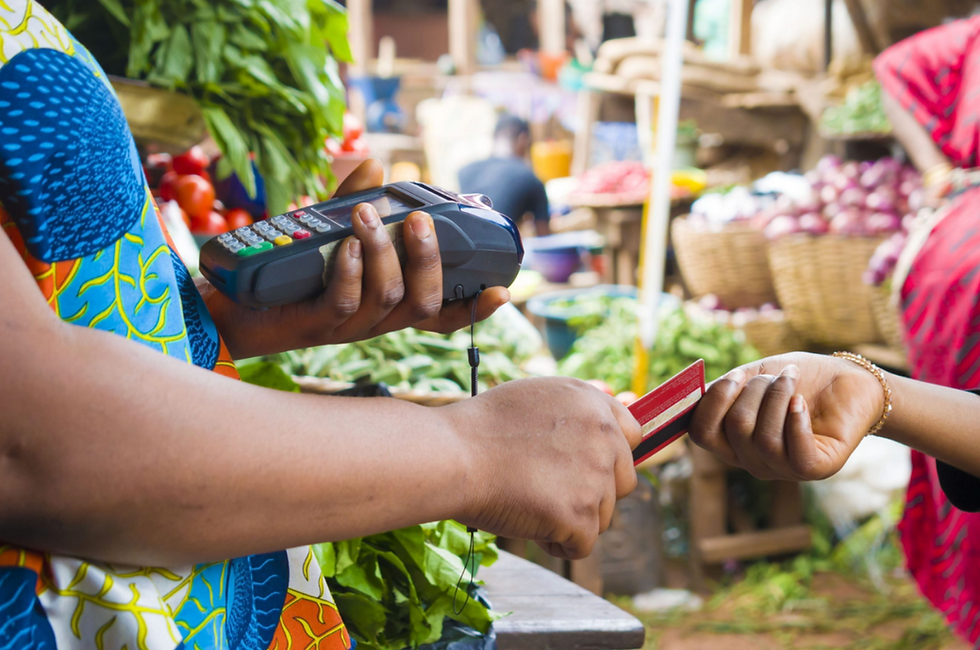Federal Shutdown underscores need for right to food
- Nov 17, 2025
- 4 min read
November 17, 2025

The longest government shutdown in U.S. history revealed the precarity of one of our country's most effective anti-poverty measures. Recipients of Supplemental Nutrition Assistance Program (SNAP) were left uncertain as to whether they would receive partial benefits, or at times uncertain if they would receive any benefits at all. Food banks and pantries were faced with extreme demand as SNAP payments were decreased or delayed this month. Many food pantries saw their numbers double - in southern West Virginia, some food banks reported an 1,800% increase in families coming to them. In other instances, hundreds of families were turned away entirely. Furloughed federal workers were also deeply impacted by the shutdown, and many have turned to local food banks for support.
Leaving millions of Americans hungry and creating an atmosphere of fear and uncertainty around the largest food assistance program in the country - with repeated roadblocks to food access - represents a major step backwards in fulfilling our commitments to one another in this country. Food should never be weaponized or used as a political tool. The right to food for all must always be protected.
SNAP is a legal entitlement that supports the right to food
SNAP is part of a long history of food and nutrition programs the United States has used to address hunger, food insecurity, and poverty across the country. SNAP benefits supported over 41 million people in 2024, and the program has become a lifeline for low income individuals and families, especially among our most vulnerable neighbors such as seniors and children.
SNAP is not a privilege, it is a legal entitlement. This means that anyone who applies for SNAP benefits and meets the eligibility requirements for the program has a legal right to receive the benefits for which they have been deemed eligible.
Beyond being a legal entitlement, SNAP is also an essential step in fulfilling the right to food for millions of people across the country.
The U.S. has signed the International Covenant on Economic, Social, and Cultural Rights (ICESCR), where the right to food appears. As a signatory, the U.S. is obligated to not act in a way that undermines ICESCR’s fundamental objectives, including the ability to afford and access food that meets your needs as a core part of an adequate standard of living.
According to international human rights law, three core duties are owed to rightsholders: respect, protect, and fulfill. The duty to respect requires governments to refrain from actions that interfere with the enjoyment of human rights. In the context of the right to food, the government is expected to respect the existing levels of access to adequate food and not take actions that will reduce that access. Reduction or freezing of SNAP benefits is effectively taking money out of millions of people’s pockets so they are forced to make difficult choices about purchasing food, paying for medicine, or making rent. Creating additional barriers to accessing SNAP for vulnerable populations undermines the right to food.
Food is a human right, not a political tool
As the uncertainty of the federal shutdown continued, state and local leaders emphasized that access to food was central to our shared humanity. Mayor of Boston Michelle Wu stated that “...food isn’t a bargaining chip. It’s a human right.” In Maine, State Senator Craig Hickman, co-author of Maine’s right to food constitutional amendment, drew upon this state’s recent commitment to the right to food when he called for a Special Session of the Maine Legislature in order to allocate funding towards gaps in SNAP benefits. In his letter, Senator Hickman urgently reminded state leaders that, “Food is life. Everyone who wants to live needs to eat.”

While the administration initially stated that they would not be providing any SNAP benefits until the government shutdown ended, a series of federal court decisions led them to agree to provide partial SNAP benefits using the contingency fund available to them. A federal judge subsequently ordered the administration to fully fund SNAP benefits - a decision which the Justice Department immediately stated they would appeal. Meanwhile, the food security of millions of people was left uncertain for weeks.
Many politicians and lawmakers across the country called on the administration to tap into governmental contingency funds to pay for SNAP benefits during the government shutdown. Others called upon their own state leaders to use state funds for SNAP.
Our food system is deeply flawed. Everyone should be able to consistently access the food they need without making compromises to other basic needs, but the fact is that this is out of reach for millions of people in our country. SNAP is an important entitlement that supports many people to afford basic essentials and should not be at risk of political theatrics. Policy changes that address the root of poverty and hunger, including raising the minimum wage, would further promote the fulfillment of the right to food.
These unprecedented federal actions expose the vulnerability of our food assistance system and those who are forced to rely on it. The federal shutdown, and the way in which SNAP was used as a ‘bargaining chip’, emphasized the importance of establishing stronger protections for the right to food across the United States. This will include empowering local food systems, promoting food independence, advocating higher wages and affordable housing, and enshrining the right to food in law and policy. The right to food means autonomy, dignity, adequacy, and choice. This will not be achieved overnight. It takes long term, systemic change to achieve full realization of certain rights, including the right to food.
Join the National Right to Food Community of Practice today in continuing to advocate for the right to food across the nation and the world: https://www.righttofoodus.org/become-a-member



